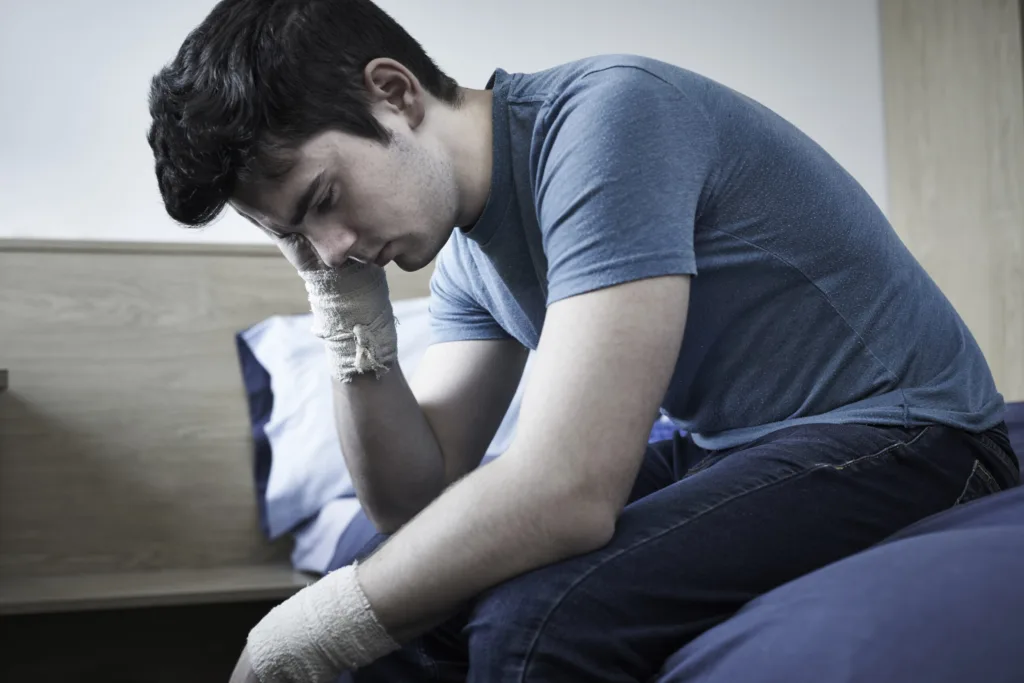
A tween is no longer a child, but not quite a teenager, and those in-between years can be rough.
Sleep is a vital component in the quality of our overall health and well-being, but studies show the majority of tweens are not sleeping enough, receiving less than 9 hours of sleep a night.
Nutrition plays a crucial role in the full spectrum of adolescent development, but studies show that the majority of people in the United States are eating what is universally considered a poor diet. Poor nutrition has been linked to a variety of health conditions including obesity, diabetes, stroke, mental health disorders and cancer.
The hormonal, mental and emotional changes occurring at this age commonly leave tweens feeling exhausted, isolated and misunderstood. Their inability to properly express themselves often leads them to interact poorly with loved ones which, ultimately, causes their suffering to be written off as the stereotypical adolescent attitude, or just something they’ll “get over.”
It can be difficult to distinguish natural teen mood fluctuations from those that are symptoms of an underlying mental health condition, but that’s what we’re here to help you with.
In this article, we’re going to take a closer look at mental health in children and tweens, as well as identify the most common and effective mental health services for these age groups.
Mental health in children
As much progress as we’ve made towards the normalization of mental health and mental health treatments here in the States, certain stigmas continue to circulate throughout society. One of the most common stigmas is the belief that children don’t have mental health problems.
There are multiple reasons why people believe this untruth, including the idea that children don’t experience anything “big enough” to cause a mental health disorder, or that mental health, mental health care and mental health issues are things only adults need to worry about.
The truth is that people of all ages can be affected by mental health conditions, including those as young as children, adolescents and tweens.
What is a tween?
“Tween” is a term used to describe children who are between the ages of 9-and-12 years old. Within this transitional stage of growing up, they’re no longer formally considered children and are just beginning to enter the pre-teenage years of adolescence, which is often challenging.
The tween-age years are not only when bodies are beginning to change, but when significant mental and emotional developments are occurring. These individuals are gaining a sense of independence, a stronger opinion about matters, a longing for identity and so much more.
It’s often the tween stage that kids often begin experiencing the world on a deeper level. They’re seeing more, hearing more, understanding more; their awareness is expanding, their brain is growing and their mind is open to much of the world around them.
Though these traits lend positively to helping tweens develop a healthy, well-rounded, compassionate view of the world, they can also make them vulnerable to negative influences.
Signs of mental illness in tweens
One of the most challenging aspects of addressing tween mental health is distinguishing the difference between natural teenage mood swings (resulting from hormonal changes) and mood swings that are occurring because of an undiagnosed mental health condition.
Your child might benefit from a professional evaluation if they:
- Appear impatient, irritable and hot-tempered much of the time
- Seem hyper-fixated on their fears or worries
- Often talk negatively about themselves or their future
- Frequently complain about headaches or stomach aches (with no obvious cause)
- Sleeping too much or too little (depending on their age, the amount of sleep they need will vary, so keep this in mind)
- Struggle to make friends, or are socially detached or disinterested
- Spend the majority of their time in self-isolation
- Diet or exercise excessively
- Engage in risky or harmful behaviors when alone
- Hyper-fixated on sexuality or sexual activities
- Blatant self-harming (such as burning and cutting) or suicidal ideations
It can be difficult (maybe even feel a little impossible) to distinguish normal teenage behavior from behavior that’s representative of deeper-seated, more severe issues. Let us help.
Mental health services for tweens
Many parents are reluctant to seek professional help for their tween. There’s a variety of reasons for this reluctance: fear or distrust of medical professionals, unsure about medication-assisted treatment and unaware of what professional help entails
The good news is there are plenty of treatment options available, the most common are: therapy and counseling, group therapy, school-based mental health services, family therapy and prevention and early intervention programs.
Depending on the type of mental health symptoms your tween is exhibiting, the overall state of their health, individual needs and whether they’re experiencing one or multiple conditions simultaneously (commonly referred to as co-occurring disorders or dual diagnosis), the type of treatment they receive can and will vary.
Depending on this will not only help your teen rebalance their mental health in the short term but strengthen their overall health and well-being in the long run.
Schedule a consultation today
If you think your teen might be struggling with a mental health condition, don’t hesitate to reach out and speak with one of our advisors.
At High Focus Centers, your tween’s recovery is our top priority. We know trusting the life of your child, especially when they’re struggling, in the hands of someone else can be scary. That’s why we work closely with you and your tween from day one to ensure their comfort and safety, and your peace of mind throughout the entire recovery process.
Call us directly today to learn more about how we can help your tween regain their health and rebuild the foundation for their lives.
Recent Posts
- How Mood Stabilizers Work to Restore Emotional Balance
- Trauma-Informed Approaches in Therapy: Why Understanding Trauma is Essential for Healing
- Using Art as a Voice: Exploring the Therapeutic Benefits of Creativity
- What is Xylazine?
- How Overcoming Roadblocks is Crucial to Recovery – And How Your Treatment Center Can Help




